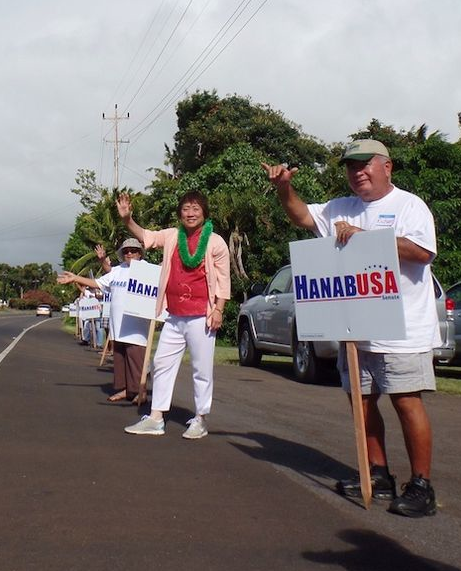Richard Ha writes:
Dennis Gonsalves and I had lunch at Zippys awhile back with Lawrence Kent of the Gates Foundation. Lawrence told us the Gates Foundation is sponsoring GM plant research to help the poorest of the poor. It’s a significant project, though just a small percent of the whole Gates Foundation effort.
I asked him about commercial banana research. He said they don’t do anything with commercial projects. Oh shucks, I thought.
But Dennis Gonsalves is working with Lawrence on a virus-resistant cassava project for Africa. Can you imagine: Local Kohala boy Dennis Gonsalves working with the Gates Foundation to help save lives of the poorest of the poor in sub-Saharan Africa? Wow.
I wrote about Hillary Clinton talking about the State Department moving from emergency feeding of the poor to GM plants that provide people with solutions they need to sustain themselves. Replacing emergency feeding programs with GM solutions gives farmers biotech tools to enhance their food production and vitamin content and more.
It’s kind of like the old saying: Give a man a fish and feed him for a day; teach a man to fish and feed him for a lifetime.
Golden rice is an example of this kind of humanitarian effort. Another is the vitamin A-enhanced banana developed in north Queensland, Australia that was recently announced.
Updated Sun 15 Jun 2014, 8:56am AEST Genetically modified bananas grown in far north Queensland and bound for Africa are about to undergo human trials in the United States
Queensland University of Technology (QUT) researchers have engineered the fruit to increase the amount of beta-carotene, which is converted to vitamin A in the body.
The aim is to prevent thousands of children in East Africa from dying or going blind as a result of vitamin A deficiency.
Published: September 21, 2011
Working in the shadow of a volcano, farmers in Puna, the heart of Hawaii’s papaya industry, harvest a bounty of healthy fruit each year. It’s a far cry from 15 years ago, when a devastating virus swept through the groves. The trees withered. Their leaves grew to resemble craggy bird claws. The fruit was pockmarked with ring-shaped spots, hallmarks of infection. The island’s papaya tradition seemed at an end.

